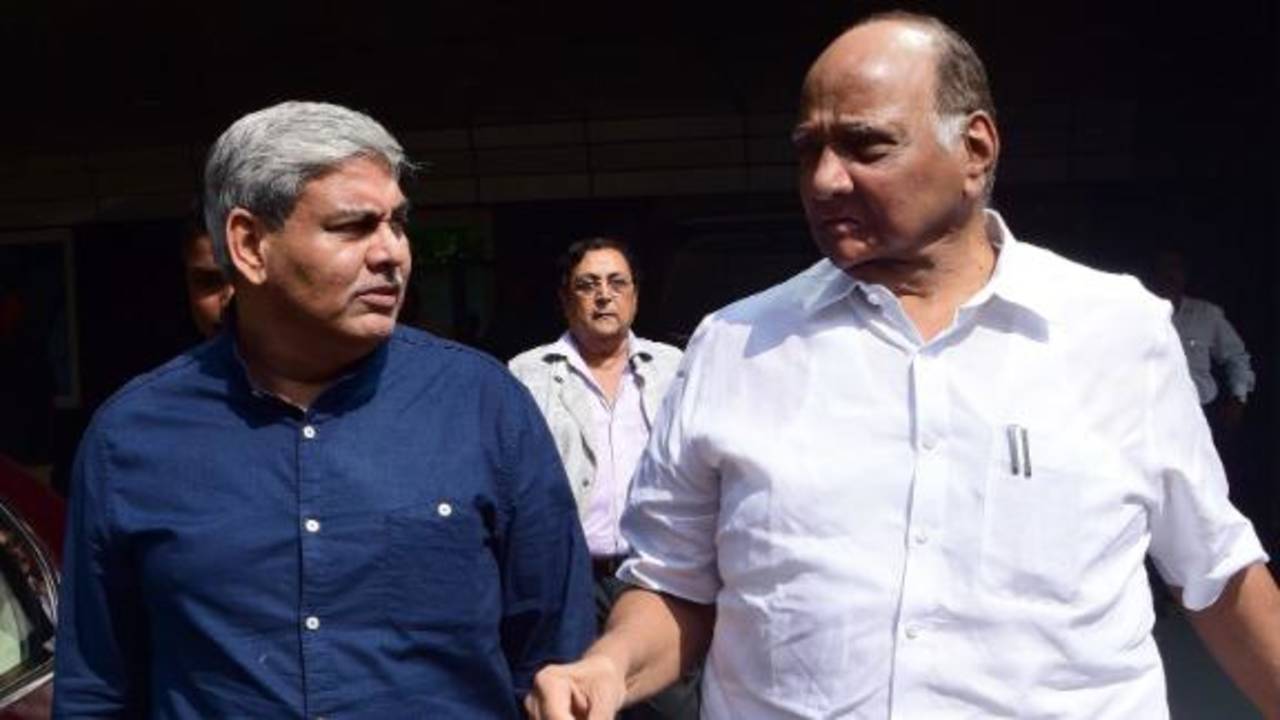For transparency and oversight, RTI and independent watchdogs
The Lodha Committee report has sought to bring the BCCI under the Right to Information Act, a path-breaking federal law that makes the working of high-profile organisations open and accessible to the public
Nagraj Gollapudi
Jan 4, 2016, 4:56 PM
Two of the biggest problems with the BCCI as it currently exists are its lack of transparency and lack of accountability. The Lodha Committee report could blow that out of the water: It seeks to bring the BCCI under the Right to Information Act, a path-breaking federal law that makes the working of high-profile organisations open and accessible to the public, and has recommended the appointment of three officials - an ombudsman, an ethics officer and an electoral officer - to make it more accountable.
The BCCI - and other national sports bodies in India - has for long opposed being brought under the purview of the RTI Act, arguing it is not a public body as are the other organisations under the law. It is currently battling a case in the Madras High Court against efforts to bring it under the RTI.
However, the Lodha Committee believes the BCCI has little option but to comply. "Although suggestions have been given in a report that gives transparency in the function and administration by the BCCI, the committee feels that since the BCCI performs public functions people have right to know the functions and facilities and other activities of the BCCI and therefore in our opinion whether the RTI Act is applicable to BCCI or BCCI is amenable to RTI is sub judice [in Madras High Court]," Justice Lodha said in Delhi after making the report public. "We have recommended the legislature must seriously consider bringing BCCI within the purview of the RTI Act."
In its exhaustive 159-page report, the committee listed the various reports the BCCI needs to publish on its website. It includes rules and regulations of the BCCI and IPL, details of the various committees of the BCCI and the IPL, the financial outlays for tournaments like the IPL, the cases referred to the ombudsman and the findings, audited accounts of the BCCI and annual reports.
One of the recommendations, of publishing payments made in excess of 25 lakhs and above, has already been done by the BCCI after Shashank Manohar took over as board president.
According to Lodha, the three authorities of ombudsman, electoral officer and eithcs officer will have "distinct" and "different" roles. The ombudsman, prescribed by the committee, would need to be a retired judge of the Supreme Court or a former chief justice of the High Court, and would be appointed at every AGM.
Incidentally, at its AGM on November 9, the BCCI appointed AP Shah, retired chief justice of the Delhi and Madras High Courts, as the ombudsman. The primary task for the ombudsman, the committee defined, was to provide the internal dispute resolution mechanism for various disputes arising in the BCCI.
The committee outlined the grievances which could be disputed within the BCCI, the BCCI and the members (state associations), the BCCI and the associate members, or the BCCI and the IPL franchises. The panel said in such instances and in the case of any misconduct or breach of rules by an administrator, member, player, team official, selector or coach, the ombudsman will investigate and his verdict would be binding.
Lodha pointed out that any member of the public could approach the ombudsman if he was aggrieved concerning ticketing, access and facilities at the various cricket grounds in India.
The Ethics Officer, the committee pointed out, should be appointed for the "purposes of guidance and resolution in instances of conflict of interest" cases. The officer would be a retired High Court judge and would be once again appointed at the BCCI AGM for a one-year tenure with a maximum of three terms possible.
The other key appointment is that of an Electoral Officer who would play a role similar to that of an election commissioner. In fact, the officer would have to be a former member of the Election Commission of India.
To make the voting process more transparent, the Electoral Officer would overlook the exercise throughout - right from adjudicating whether a nominee or a candidate is eligible to vote or stand for elections, to resolving disputes disqualifications, eligibility to vote, or the admission or rejection of a vote in the elections to the Apex Council, the Players' Cricket Association or any of the other BCCI committees. The officer's decision would be final and conclusive, the committee has pointed out.
Nagraj Gollapudi is an assistant editor at ESPNcricinfo
